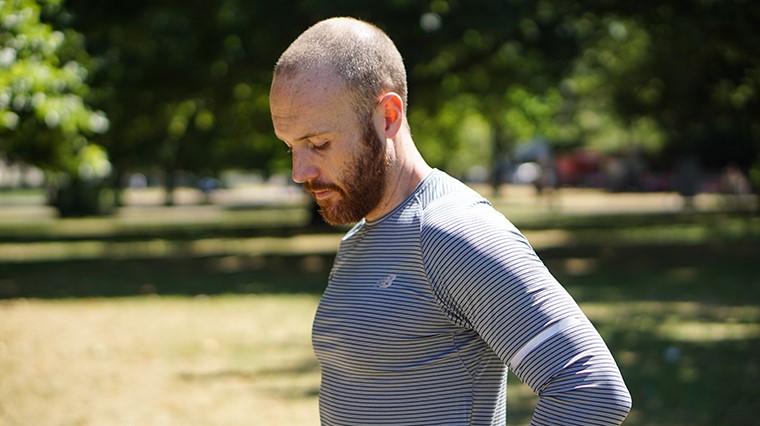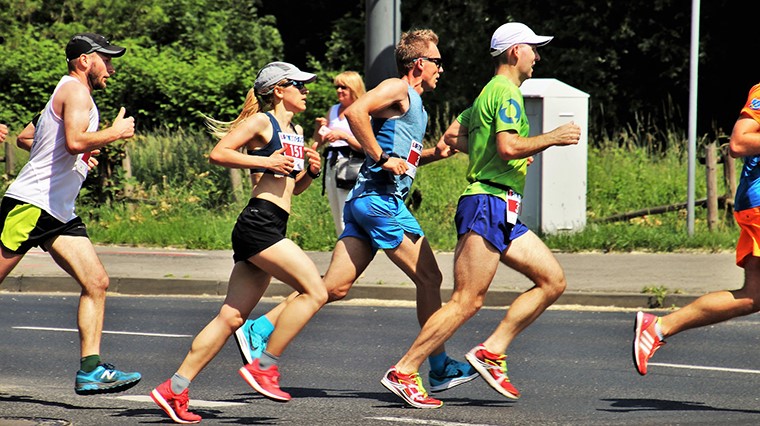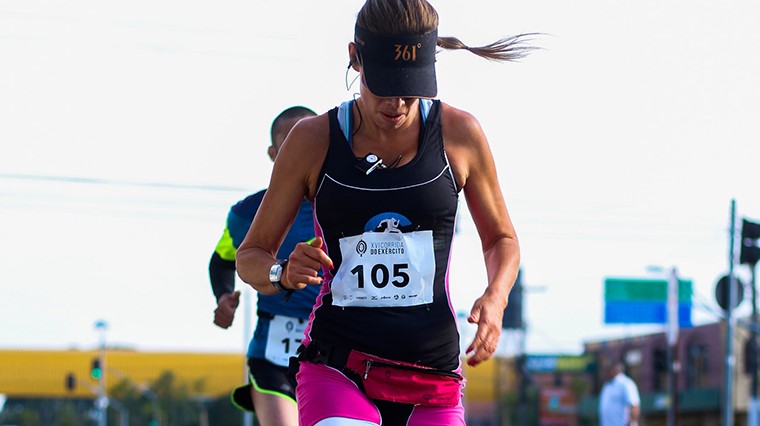Pre-Race Butterflies vs Performance Anxiety: What's The Difference?

It's not only normal but beneficial to feel a level of nerves on race day. However, when those nerves transform from run-of-the-mill butterflies into full-blown performance anxiety, it can be detrimental to your mental health and physical performance.
By knowing the difference, you can avoid mental sabotage, trust in your training and take a positive, productive attitude towards your emotional health and wellbeing as an athlete.
Pre-race butterflies

It’s only natural to have ‘butterflies’ in your belly on race-day. It’s a mental response to prime yourself for the task at hand and an indication that this is important to you – this is what you’ve worked for.
Compared to complete sense of calm and disassociation, a healthy dose of pre-race jitters is beneficial – alongside an accelerated heart rate, you’ll have sharpened focus and be physically alert and energised.
Usually the uneasy feeling in your stomach and nervous energy will dissipate as your focus shifts and your ‘butterflies’ align – allowing you to flow into the race and ‘run out’ the tension.
Pre-race butterflies naturally boost adrenaline and excitement that can be channelled into your movement – embrace them.
Performance anxiety

Where pre-race butterflies help put your body and mindset into gear, performance or competition anxiety can have the opposite effect and make you feel physically sick to your stomach or overload you with irrational panic.
In contrast to pre-race butterflies that are based on the desire to do well and excitement in the face of the challenge, performance anxiety is often fear-based – whether it’s fear of failure, fear of unknown outcomes or fear of scrutiny from others.
Alike with pre-race butterflies, you’ll experience an elevated heart rate but it’ll likely be accompanied by negative self-talk or swarms of thought (‘busy brain’) that leave you feeling emotionally and physically tight, exhausted or lost in self-doubt. The negative feelings and tightness may stay with you, even as you cross the finish line.
Performance anxiety can be debilitating and cause you to ‘choke’ under the self-inflicted stress and pressure. It’s self-perpetuating – thoughts like “Everyone can see how anxious I am, I can’t do this” feed the anxiety monster and build negativity upon negativity.
It can take hold to such a degree that some athletes will withdraw from the event entirely (a fight-or-flight response), experience ‘phantom pains’ or suffer through every stride with no sense of joy or accomplishment and a dramatically underestimated sense of their abilities.
Uncover the cause of your performance anxiety and understand it

Understanding the why behind your performance anxiety rather than fighting or running from it may help you make positive steps towards alleviating it. This is different for everyone, but may include:
- Fear of failure
- Fear of the unknown
- Fear of pain
- Burdened by negative self-talk or a ‘busy brain’
- Obsessing over results/setting a specific time/too high expectations
- Worry that you haven’t done enough to train – causing you to second-guess your abilities
- Feeling unprepared for things you can’t control
- Concerned of what others will think of you
Physical symptoms of performance anxiety
Everyone reacts differently to performance anxiety, but physical symptoms may include:
- Excessive perspiration or sweaty palms
- Rapid breathing
- Trembling hands or voice
- Accelerated heart rate
- Nausea
There are positive steps you can take to overcome your performance anxiety and it's worth experimenting to see what works for you. Please seek professional help or talk to someone you trust if you ever feel overwhelmed.
